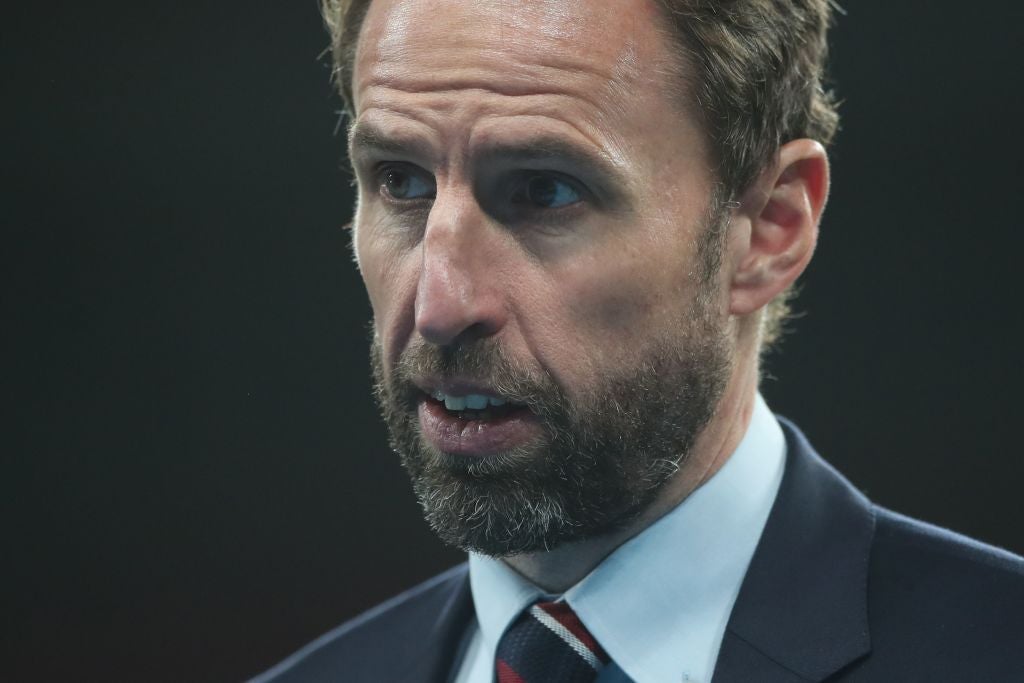Gareth Southgate leads FA’s support of research into dementia and football
The Three Lions boss will take part in a study to further examine the connection between former footballers suffering from dementia

Your support helps us to tell the story
From reproductive rights to climate change to Big Tech, The Independent is on the ground when the story is developing. Whether it's investigating the financials of Elon Musk's pro-Trump PAC or producing our latest documentary, 'The A Word', which shines a light on the American women fighting for reproductive rights, we know how important it is to parse out the facts from the messaging.
At such a critical moment in US history, we need reporters on the ground. Your donation allows us to keep sending journalists to speak to both sides of the story.
The Independent is trusted by Americans across the entire political spectrum. And unlike many other quality news outlets, we choose not to lock Americans out of our reporting and analysis with paywalls. We believe quality journalism should be available to everyone, paid for by those who can afford it.
Your support makes all the difference.Gareth Southgate will take part in a study to lead the FA’s efforts into research over the link between neurodegenerative disorders and former players.
The national body pushing for more “objective, robust and thorough research in this area” to better understand the link between neurodegenerative disorders and former footballers.
The potential link has been highlighted recently by England World Cup winner Sir Bobby Charlton's dementia diagnosis, in addition to the death of his brother Jack and their 1966 team-mate Nobby Stiles, both of whom had been suffering with dementia when they died.
Southgate said: "This is an incredibly-important issue in our game and I’m very happy to play my part in supporting this research. Having turned 50 last year, I am now eligible to take part in the HEADING study, which could provide crucial and valuable insight to help people who play the game now and in the future.
READ MORE: PFA demand heading in training reduced to tackle football’s dementia problem
“I would encourage any former professional footballer who is willing and able to take part in the HEADING or the FOCUS study to do so.
“Our involvement is absolutely essential if we are to have a greater understanding of this issue; and their support for the studies can be done from their home, either online or over the phone.”
The FOCUS study is being conducted by the University of Nottingham and is funded by the FA and the PFA with a pre-selected group of ex-players and is not able to take further volunteers at this stage.
The League Managers' Association is also supporting the SCORES project at the University of East Anglia, the FA said.
FA head of medicine Dr Charlotte Cowie said: "Dementia is a debilitating disease across wider society, and we are doing everything we can to build a greater understanding of what causes the link between neurodegenerative disorders and former professional footballers.
"We have helped to make great strides in our knowledge and insight in this area, however our next step is a crucial one, and it's not one that we can do alone. Simply put, without the support and involvement of former professional footballers who are over the age of 50, it will be almost impossible to take our research and understanding to the next level.
"I'm very pleased that Gareth Southgate has agreed to support the HEADING study and I hope that it will give encouragement to other former professional footballers to take part in these important research studies as well."
Families of a group of former professionals suffering with dementia are understood to be in contact with Rylands Law regarding a potential legal action.
In 2019, the FIELD study at the University of Glasgow found footballers were three and a half times more likely to die of neurodegenerative disease compared to age-matched members of the general population.
Join our commenting forum
Join thought-provoking conversations, follow other Independent readers and see their replies
7Comments